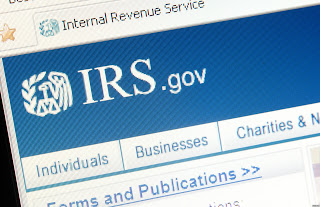On August 29th, IRS issued Revenue Ruling 2013-17 to clarify some of the federal tax issues raised by the U.S. Supreme Court’s ruling in the Windsor case.
 In case you have not been keeping up with the news for the last couple of months, the Supreme Court ruled that Section 3 of DOMA (Defense of Marriage Act) was unconstitutional thus making same-sex marriages “legal” at the federal level. The Court’s decision left the definition of marriage up to the individual states.
In case you have not been keeping up with the news for the last couple of months, the Supreme Court ruled that Section 3 of DOMA (Defense of Marriage Act) was unconstitutional thus making same-sex marriages “legal” at the federal level. The Court’s decision left the definition of marriage up to the individual states.
Federal agencies, such as IRS, are now left with the task of revising their policies to accommodate the current interpretation of the law. The IRS came out with their first official pronouncement in Rev. Rul. 2013-17.
IRS has decided to keep things simple. For federal tax purposes, any same-sex marriage performed in a state or country that legally recognizes that marriage will be recognized at the federal level. The current state of residence of the married couple will be ignored. For example, a couple who got married in Connecticut, a state allowing same-sex marriages, could live in Florida, a state not allowing same-sex marriages, and they will now be treated as married for federal tax purposes.
The effective date of Revenue Ruling 2013-17 is September 16, 2013. The Ruling also says that tax returns that are within the legal amendment period can be amended. That will generally apply to returns filed for 2010, 2011, and 2012. Going forward, same-sex couples who are legally married will be required to file their tax returns as married - the same as opposite-sex couples.
The Ruling also stated that domestic partnerships and civil unions will NOT be recognized as “marriages” for federal tax purposes.
IRS has said that there will be further guidance issued for retirement plans.
- By Beverly DeVeny and Jared Trexler
IRS Issues DOMA Ruling
Friday, August 30, 2013
No comments
Mailbag
Thursday's Slott Report Mailbag

Consumers: Send in Your Questions to [email protected]
Q:
You recently said that a 401(k) distribution would add to your MAGI (modified adjusted gross income) for the purpose of determining if you are subject to the 3.8% healthcare surtax. What about Roth IRA distributions? Would they also count towards your total MAGI income for surtax purposes?
Thanks
A:
IRA distributions are exempt from the 3.8% surtax, but taxable distributions from IRAs can push income over the threshold amount, causing other investment income to be subject to the surtax. Because Roth IRA distributions are generally tax-free, they don’t count towards your total MAGI.










0 comments:
Post a Comment